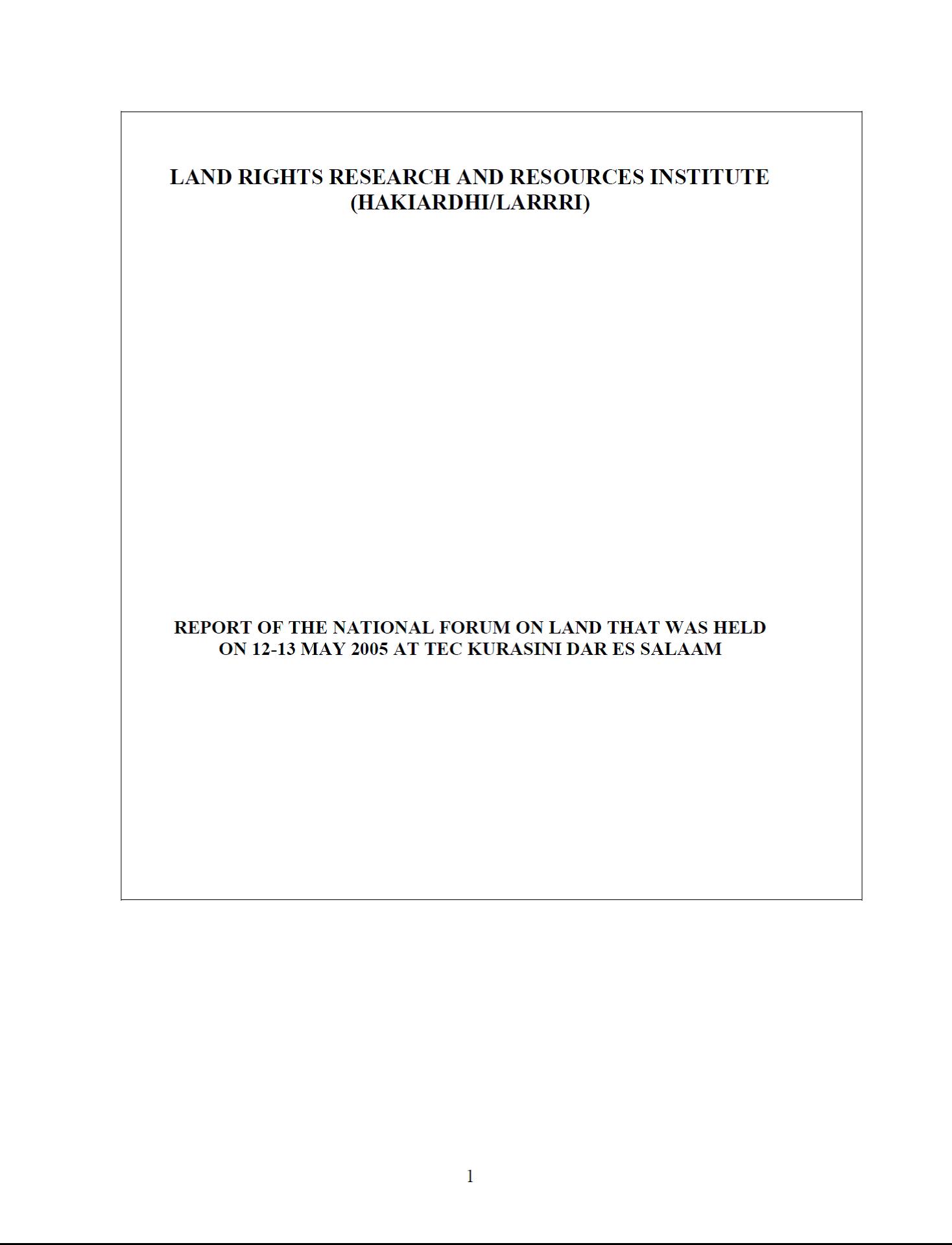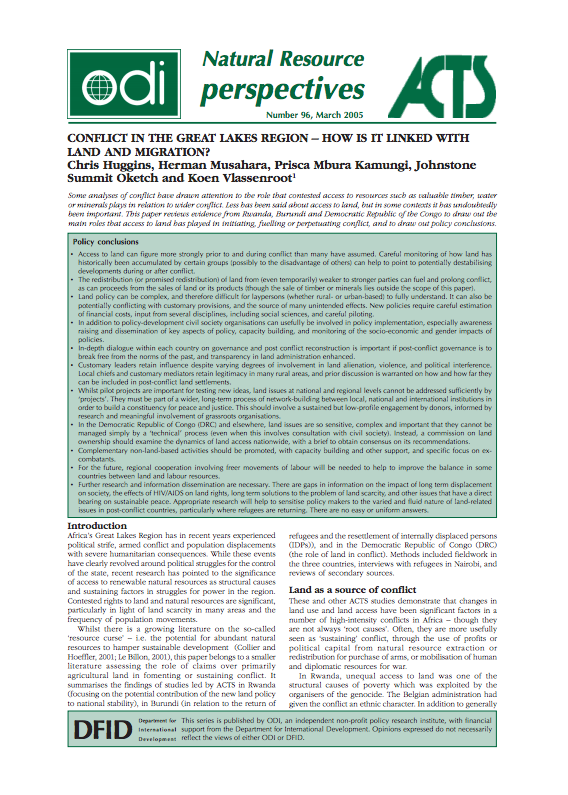Land Reform, Land Scarcity and Post-Conflict Reconstruction: A Case Study of Rwanda
This case study, based on interviews in Rwanda and an extensive review of secondary material, builds on previous analysis, and examines proposed land reforms as articulated in the National Land Policy. However, it does not attempt to be a comprehensive review of the land policy – more in-depth studies have already been conducted. Instead, it situates the policy and the process involved within the wider debates about governance and conflict resolution in the country.




